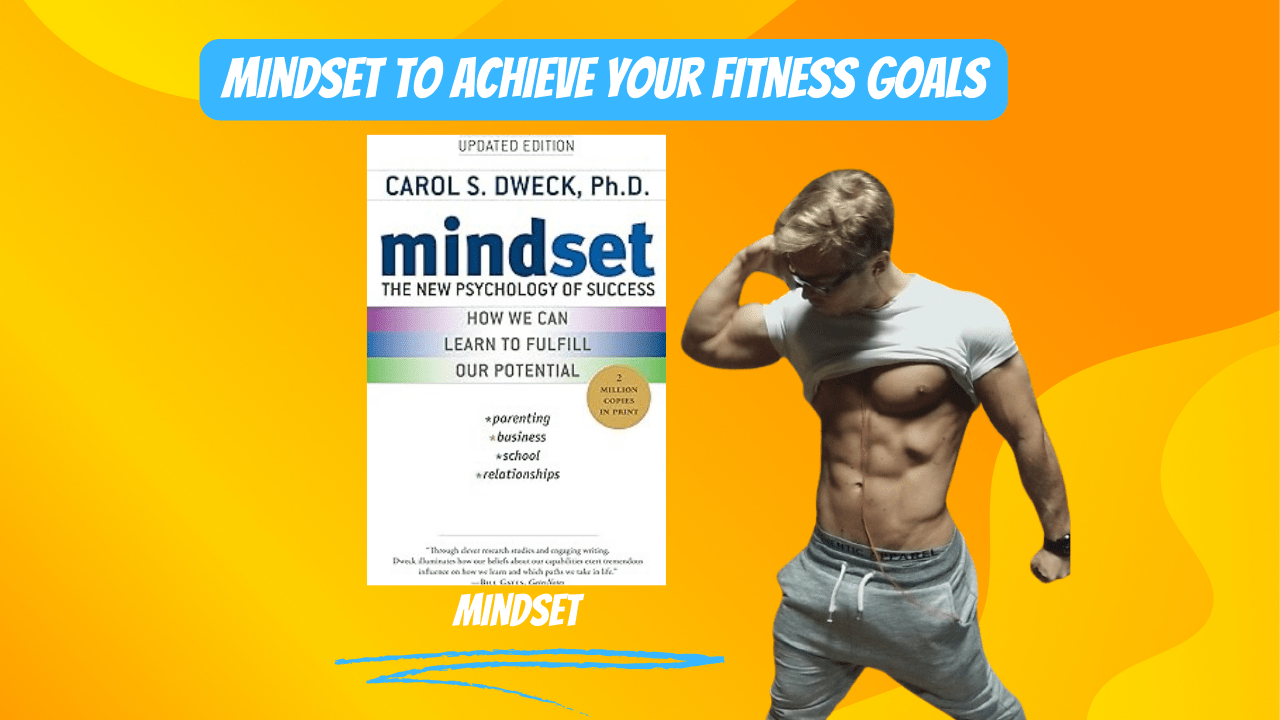Achieving Fitness Goals with “Mindset” Principles from Carol S. Dweck
Achieving your fitness goals is not just about physical effort; it’s about the right mindset. Carol S. Dweck’s book, “Mindset: The New Psychology of Success”, provides valuable insights into how adopting a growth mindset can transform your fitness journey. By understanding and applying these principles, you can overcome obstacles, stay motivated, and reach your fitness aspirations.
Understanding the Fixed vs. Growth Mindset
The Fixed Mindset
A fixed mindset is the conviction that abilities and intelligence are fixed and unchangeable. Individuals with a fixed mindset often avoid obstacles, give up easily, and feel intimidated by the success of others. In the context of fitness, this might manifest as believing you’re not naturally athletic or that you’ll never improve beyond a certain point.
The Growth Mindset
Conversely, a growth mindset is the belief that abilities and intelligence can be developed through dedication and hard work. Those with a growth mindset embrace challenges, persist through setbacks, and find inspiration in the success of others. Adopting a growth mindset can revolutionize your approach to fitness by fostering resilience and a love for learning.
Embracing Challenges
Viewing Challenges as Opportunities
One of the core tenets of a growth mindset is viewing challenges as opportunities for growth rather than obstacles. In fitness, this means embracing difficult workouts or new exercises as chances to improve. Instead of avoiding strenuous activities, see them as stepping stones to becoming stronger and fitter.
Setting Stretch Goals
To truly embrace challenges, set stretch goals that push your limits. These are goals that are just outside your current capabilities and require effort and learning to achieve. For instance, if you can currently run 5 kilometers, set a goal to run 10 kilometers. Stretch goals keep you motivated and continually advancing.
The Power of Perseverance
Embracing Effort
Dweck emphasizes the importance of effort in the growth mindset framework. Effort is seen as the path to mastery rather than a sign of inadequacy. In your fitness journey, recognize that every drop of sweat and every sore muscle is a testament to your dedication. Celebrate your effort, knowing it’s a crucial part of your progress.
Learning from Setbacks
Setbacks are inevitable in any journey, including fitness. The growth mindset teaches us to learn from setbacks rather than being defeated by them. If you miss a workout or hit a plateau, analyze what happened, adjust your approach, and continue moving forward. Every setback is a learning opportunity that gets you closer to your destination.
Cultivating a Love for Learning
Continual Improvement
A growth mindset fosters a love for learning and continual improvement. In fitness, this means always seeking to learn new techniques, try new workouts, and improve your knowledge of health and nutrition. Stay curious and open to new experiences, as this will keep your fitness journey exciting and dynamic.
Seeking Feedback
Feedback is a valuable tool for growth. Seek constructive feedback from trainers, coaches, or workout partners to identify areas for improvement. Embrace this feedback as a means to enhance your skills and performance. Remember, feedback is not a criticism but a pathway to becoming better.
The Role of Positive Self-Talk
Reframing Negative Thoughts
Negative self-talk can undermine your fitness efforts. A growth mindset involves reframing negative thoughts into positive ones. Instead of thinking, “I’ll never be able to do this,” reframe it to, “I can’t do this yet, but I’m working on it.” Positive self-talk reinforces your belief in your ability to improve and succeed.
Affirmations for Success
Use affirmations to boost your confidence and motivation. Affirmations are positive words that you repeat to yourself routinely. For example, “I am strong and capable,” or “I am dedicated to my fitness goals.” These affirmations can help shift your mindset and keep you focused on your journey.
Building a Supportive Environment
Surrounding Yourself with Positivity
Your surroundings plays an essential role in shaping your mindset. Surround yourself with positive and supportive people who encourage your fitness goals. Join fitness communities, find workout buddies, or engage with online groups that share your aspirations. A supportive environment provides motivation and accountability.
Eliminating Negative Influences
Identify and eliminate negative influences that hinder your progress. This could be unsupportive friends, negative self-talk, or unhealthy habits. Creating a positive environment is essential for maintaining a growth mindset and achieving your fitness goals.
Conclusion
Achieving your fitness goals is as much about your mindset as it is about physical effort. By embracing the principles of a growth mindset as outlined in Carol S. Dweck’s “Mindset: The New Psychology of Success,” you can transform your approach to fitness. View challenges as opportunities, persist through setbacks, cultivate a love for learning, use positive self-talk, and build a supportive environment. These strategies will not only help you reach your fitness goals but also foster a lifelong love for health and wellness.
For further reading and to deepen your understanding of the growth mindset, consider getting a copy of “Mindset: The New Psychology of Success” by Carol S. Dweck. You can find it here.


